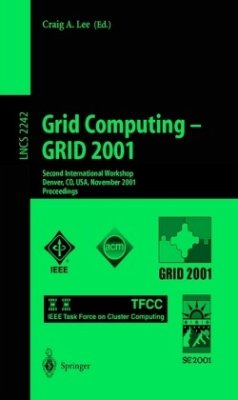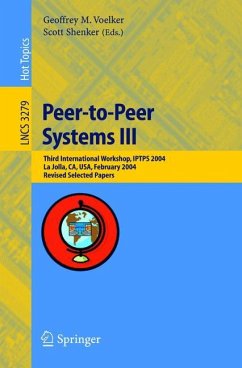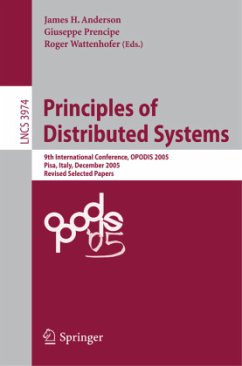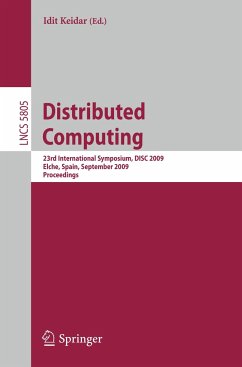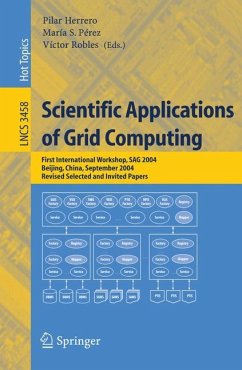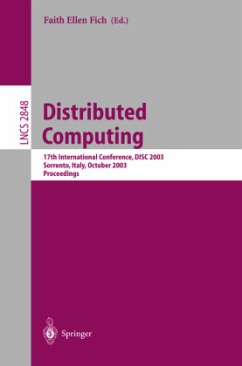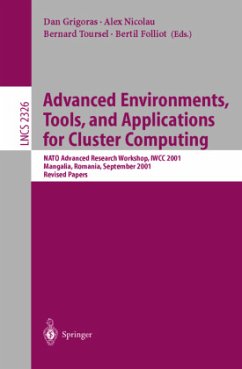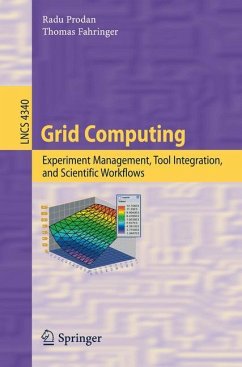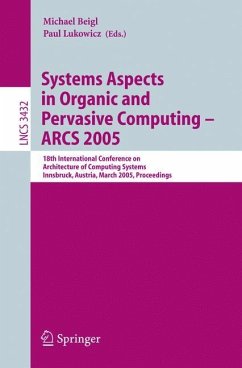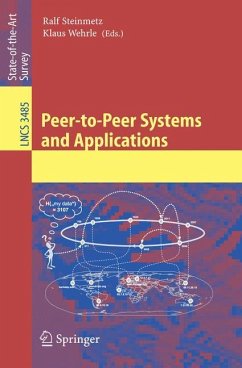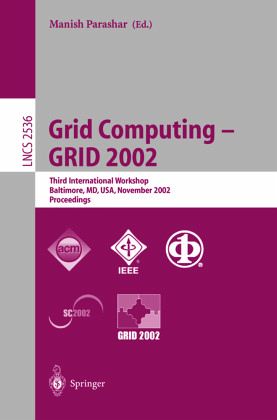
Grid Computing - GRID 2002
Third International Workshop, Baltimore, MD, USA, November 18, 2002, Proceedings
Herausgegeben: Parashar, Manish

PAYBACK Punkte
20 °P sammeln!
The growth of the Internet and the availability of powerful computers and hi- speed networks as low-cost commodity components are changing the way we do computing. These new technologies have enabled the clustering of a wide variety of geographically distributed resources, such as supercomputers, storage systems, data sources, and special devices and services, which can then be used as a uni?ed resource. Furthermore, they have enabled seamless access to and interaction among these distributed resources, services, applications, and data. The new paradigm that has evolved is popularly termed "Gr...
The growth of the Internet and the availability of powerful computers and hi- speed networks as low-cost commodity components are changing the way we do computing. These new technologies have enabled the clustering of a wide variety of geographically distributed resources, such as supercomputers, storage systems, data sources, and special devices and services, which can then be used as a uni?ed resource. Furthermore, they have enabled seamless access to and interaction among these distributed resources, services, applications, and data. The new paradigm that has evolved is popularly termed "Grid computing". Grid computing and the utilization of the global Grid infrastructure have presented signi?cant challenges at all levels, including application development, progr- ming models, systems, infrastructures and services, networking, and security, and have led to the development of a global research community. Grid 2002 is the third in a series of workshops developed to provide a - rum for this growing Grid Computing research community. Grid 2000, the ?rst workshop in the series, was chaired by Rajkumar Buyya and Mark Baker, and was held in conjunction with HiPC 2002 in Bangalore, India. Grid 2001 (Chair: Craig A. Lee) and Grid 2002 were held in conjunction with Supercomputing, the world's premier meeting for high-performance computing.





